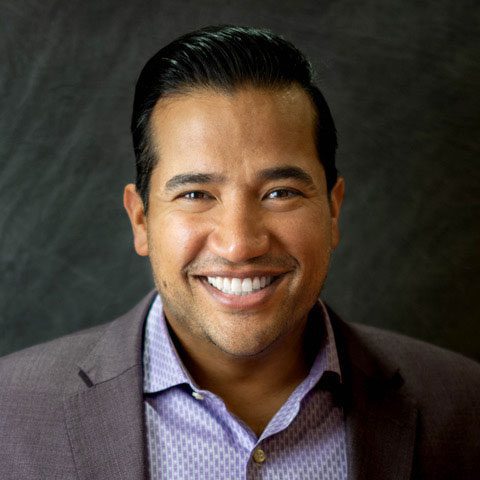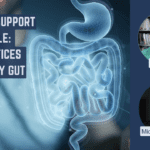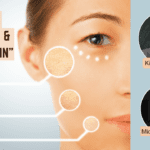
Play Video
What is a Postbiotic?
View the full webinar – Microbiome Deep Dive: Probiotics, Prebiotics, Postbiotics, and Psychobiotics
Purchase HoloImmune

SHARE THIS EPISODE
Recent Videos
Webinar Transcript
Michael Roesslein:
The post biotic, para probiotic, ghost biotic, I used that term in a couple of the emails the last handful of days to talk about what we’re going to talk about because I loved hearing it, and people are interested because it sounds really cool. But you mentioned earlier with the sauerkraut and the kombucha and the yogurt, things like that, a lot of the benefits that come from those things, if people see benefits, is from what’s being produced by the organisms that fermented the food.
And so that is one. I know that in the webinar you said there’s a more strict definition on this postbiotic, para probiotic, but that’s one thing that’s usually lumped into this category, is a substrate that is made up of metabolites of organisms that the substrate itself is made up of minerals or vitamins or different kinds of things that the organisms made. And then you can ingest those things. We have a product in our shop called Supernatant Symbiotic by bioimmersion, and their Supernatant is this, she calls it a slurry of this post metabolism microbe food that it makes for your gut. And loosely that’s categorized in this topic, but what is the actual definition of this category of thing? I don’t know what to use the right word there.
Kiran Krishnan:
Right. So postbiotic is the most commonly used term, but you do hear ghost probiotic, para probiotic, and so on. So years ago we used to refer to postbiotics as anything that a microbe makes during fermentation that has a benefit to the host, so metabolites of fermentation. So if you take a bunch of fruit or sauerkraut or something and you add a microbe, you allow it to ferment, basically, what the microbe is doing is it’s consuming the substrate. The substrate is the food that we use, the fruit, sauerkraut, whatever it may be. And in its process of consuming it it’s producing these byproducts that all have all kinds of amazing benefits. So now when you consume that, not only do you get some of the original benefits of the sauerkraut, there’s the simple nutrient benefit, but it’s taken that because of the fermentation and enhanced it 1,000 fold in terms of its nutrient density and value.
And so that’s where fermented foods come in. They’re basically predigested enhanced foods because the microbes are breaking it down and adding and creating all kinds of amazing substances. So we used to refer to that whole slurry, which also includes the microbe, which is not going to function in a live form, that microbe will die when you digest it, but there may be some components of that dead microbe that could still be beneficial. So that whole thing used to be referred to as a postbiotic. Now I think it’s the International Association of Probiotics or some organization has come up with a definition that says that a postbiotic is a dead microorganism that has benefit. So it’s basically not a probiotic because it’s not live, but it’s still a bacterial therapy, a therapeutic bacteria, and when it’s dead it still has functionality. So when you see postbiotics moving forward, that’s really what they’re referring to, dead microorganisms that have benefit.
And that can absolutely be true. There’s lots of good, well-documented strains that when they’re dead, in fact their benefit is higher compared to when they’re alive, or at the least when they’re dead the benefit is the same as when they’re alive. Now, some people wonder why that is. Well, because the benefit from those organisms come from unique things that they have on their outer membrane. So they don’t need to colonize and multiply and do all their metabolism. They just need to be present, and your body responds to something that’s on the outer membrane of that microbe in a favorable way. We launched one that I think is one of the coolest probiotic, or not probiotic, postbiotic bacterial products, and that’s the PyloGuard. So this is a lactobacillus strain. It is a lactobacillus strain that binds to helicobacter pylori in the stomach or in the small bowel, wherever it may be, conjugates with it, and takes it out of the system.
It’s a dead bacteria. It doesn’t colonize, you can’t grow it. It doesn’t live in the gut, but it’s intact. And there’s something about its outer membrane that has a high affinity for helicobacter pylori. So if you’ve got h. pylori sitting there in your stomach causing infection and all kinds of issues, this microbe comes in and two or three of them surround the h. pylori, binds it up, and then takes it out through defecation. It’s not alive, you don’t have to worry about maintaining its stability, any of that. It’s dead and it’s functioning great. Now, again, with postbiotics, more often than not the functionality is based on one or two small compounds that are present on the outer membrane, which means, again, it becomes very, very species specific.
The strain of probiotic that we use to bind h. pylori is a lactobacillus plantarum, I think, if I’m not mistaken. But it’s a very specific subspecies of plantarum, you can’t take any other plantarum and expect it to do the same thing. So even with postbiotics, when you start seeing those in the market, the true postbiotics that have been studied for its effect can be really beneficial. But normally they have a very narrow effect, they do very specific things, and it has to be that subspecies or it’s not going to do it. So if you’re hearing about postbiotics, they can do this, they can do that, you need to make sure you’re getting the strain of the subspecies that has been in the studies.
Michael Roesslein:
Fascinating the dead bacteria are, this is where the term ghost biotic probably comes in, but it’s where the dead bacteria is having an effect. And we carry a holoimmune from Healthy Gut, Steve Wright formulated, and that’s got some freeze dried or heat, I don’t remember how he said, they’re killed in a very specific way, and then they do have an effect in the gut. He mixed that with some beta glucans, which have some pretty nice beneficial effects to them too.
Kiran Krishnan:
Yeah, it’s probably lyophilized. Lyophilized is the fancy word for freeze dried.
Michael Roesslein:
Yes.
Kiran Krishnan:
And the benefit of freeze drying is that it preserves the structure of the microbe. It doesn’t blow up the microbe. And in most cases with postbiotics, you need to preserve the structure of the microbe because the outer membrane is what really conveys the benefit.
Michael Roesslein:
Okay. And if you blast the membrane apart, it’s not going to work.
Kiran Krishnan:
Yep.
Michael Roesslein:
So it has to be very specific, just like the probiotics. Don’t go eating spoonfuls of dead organisms and expect some miraculous occurrence in your belly because we told you that ghost biotics are a thing.

Kiran Krishnan
About our Guest
Kiran Krishnan is a Research Microbiologist and has been involved in the dietary supplement and nutrition market for the past 17 years. He comes from a strict research background having spent several years with hands-on R&D in the fields of molecular medicine and microbiology at the University of Iowa. He left University research to take a position as the U.S. Business Development and Product Development lead for Amano Enzyme, USA. Amano is one of the world’s largest suppliers of therapeutic enzymes used in the dietary supplement and pharmaceutical industries in North America. Kiran also established a Clinical Research Organization where he designed and conducted dozens of human clinical trials in human nutrition.
Kiran is also a co-founder and partner in Nu Science Trading, LLC.; a nutritional technology development, research and marketing company in the U.S. Dietary Supplement and Medical Food markets. Most recently, Kiran is acting as the Chief Scientific Officer at Physician’s Exclusive, LLC. and Microbiome Labs. He has developed over 50 private label nutritional products for small to large brands in the global market. He is a frequent lecturer on the Human Microbiome at Medical and Nutrition Conferences. He conducts the popular monthly Microbiome Series Webinars through the Rebel Health Tribe Group practitioner training program, is an expert guest on National Radio and Satellite radio and has been a guest speaker on several Health Summits as a microbiome expert. He is currently involved in 9 novel human clinical trials on probiotics and the human microbiome.
Kiran is also on the Scientific Advisory Board for 5 other companies in the industry. Kiran offers his extensive knowledge and practical application of the latest science on the human microbiome as it relates to health and wellness.





